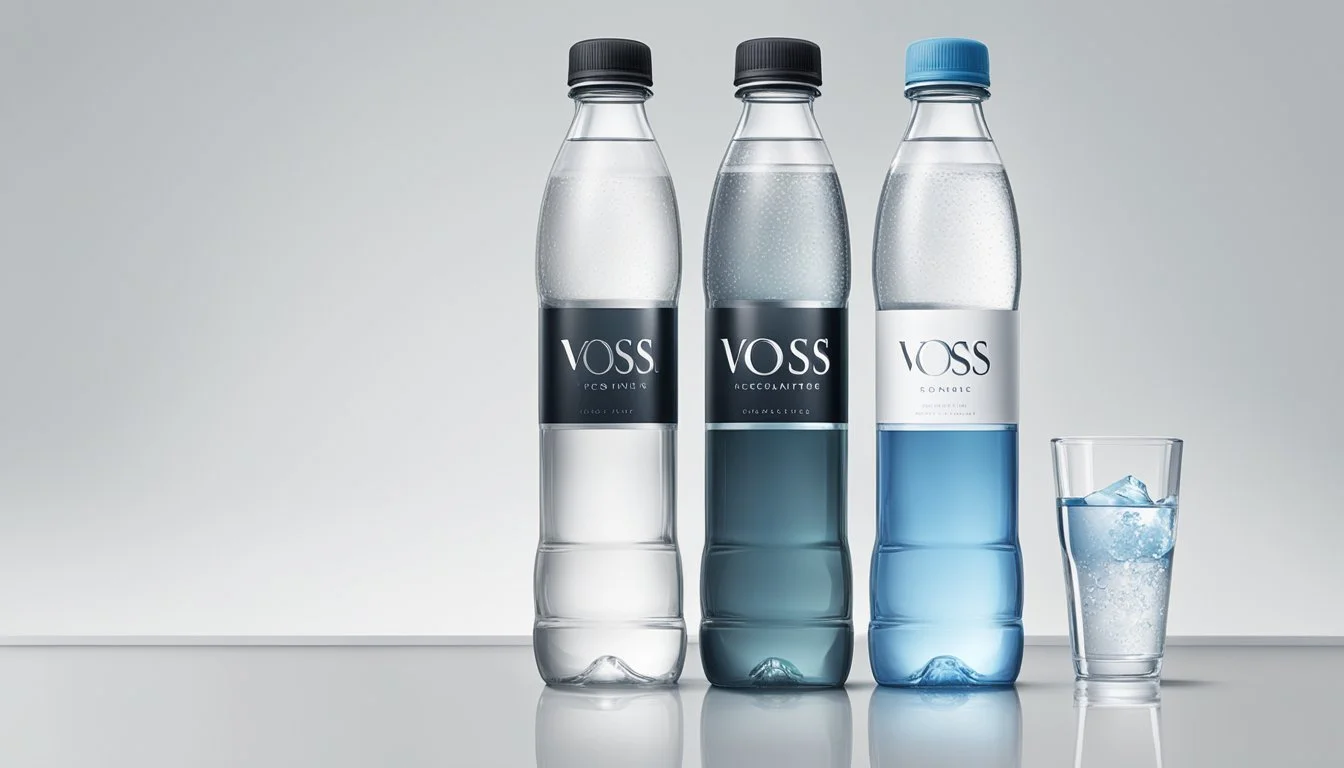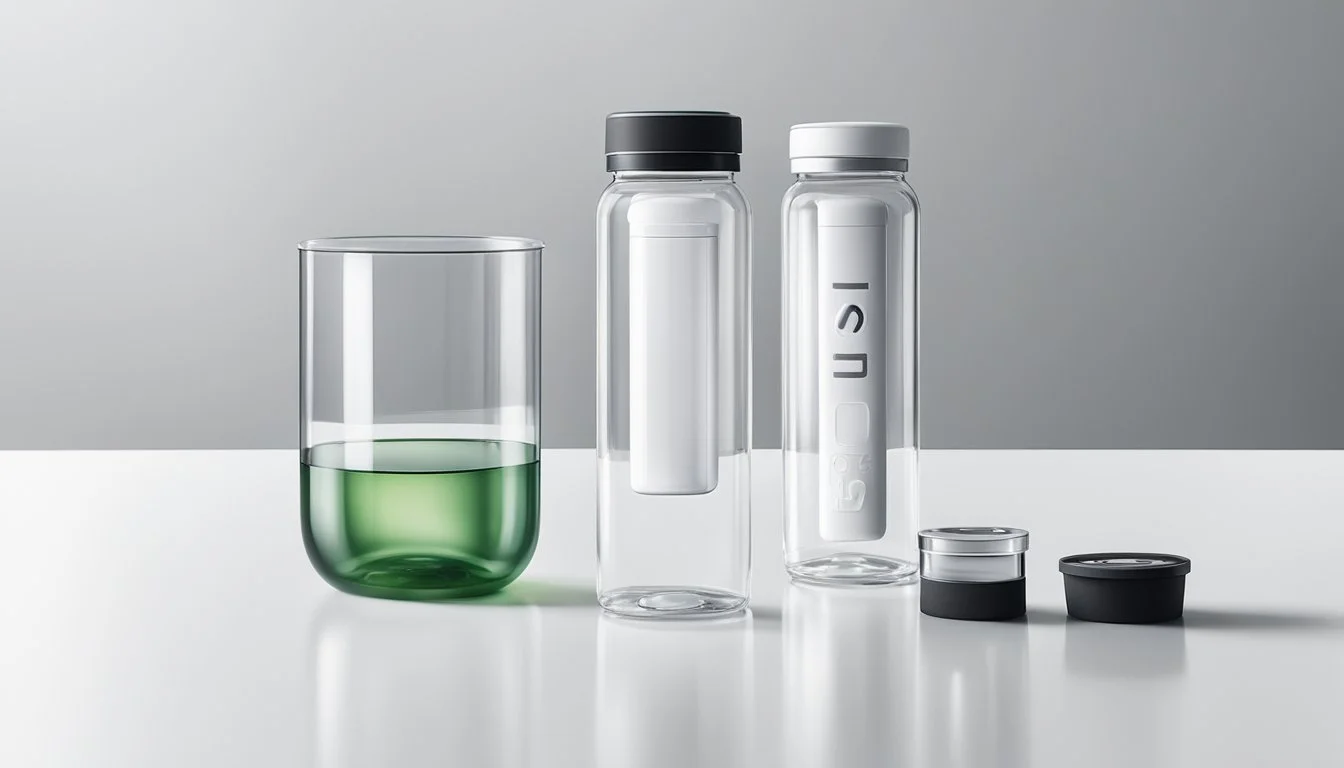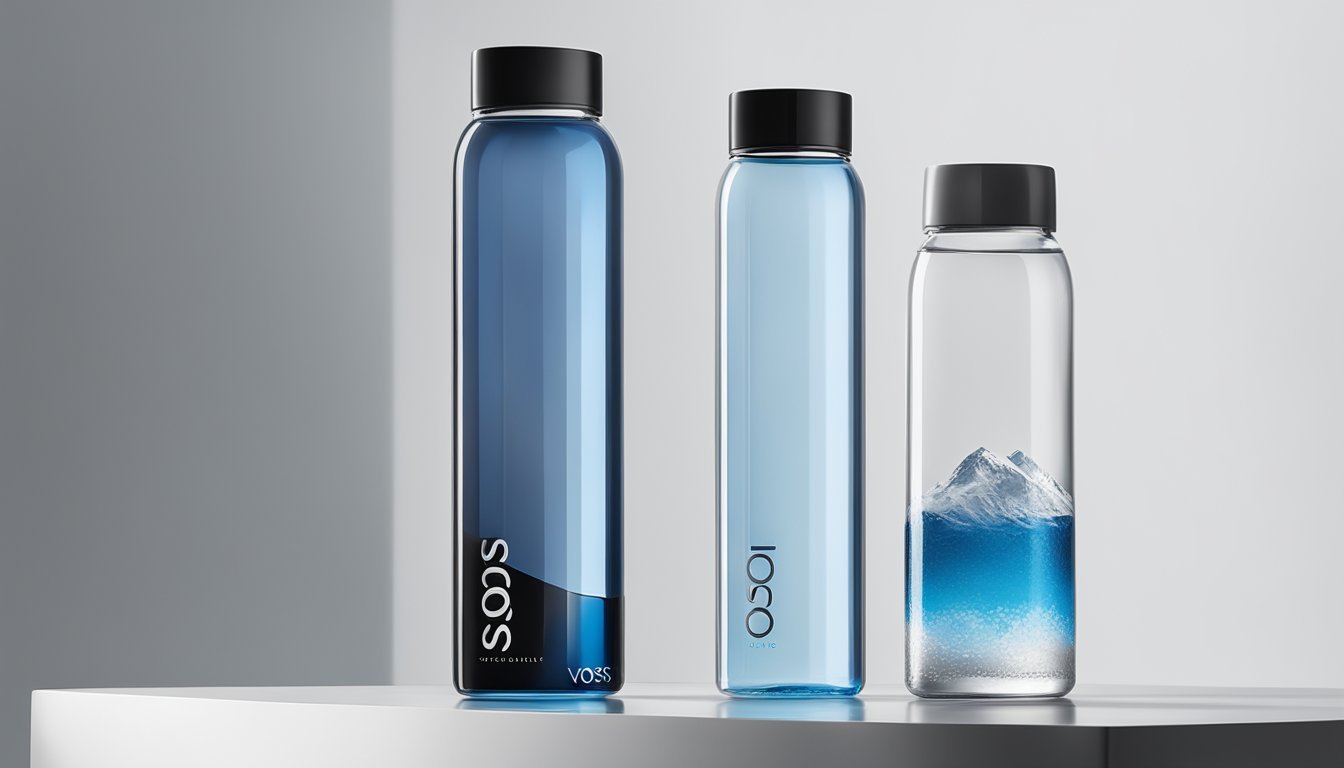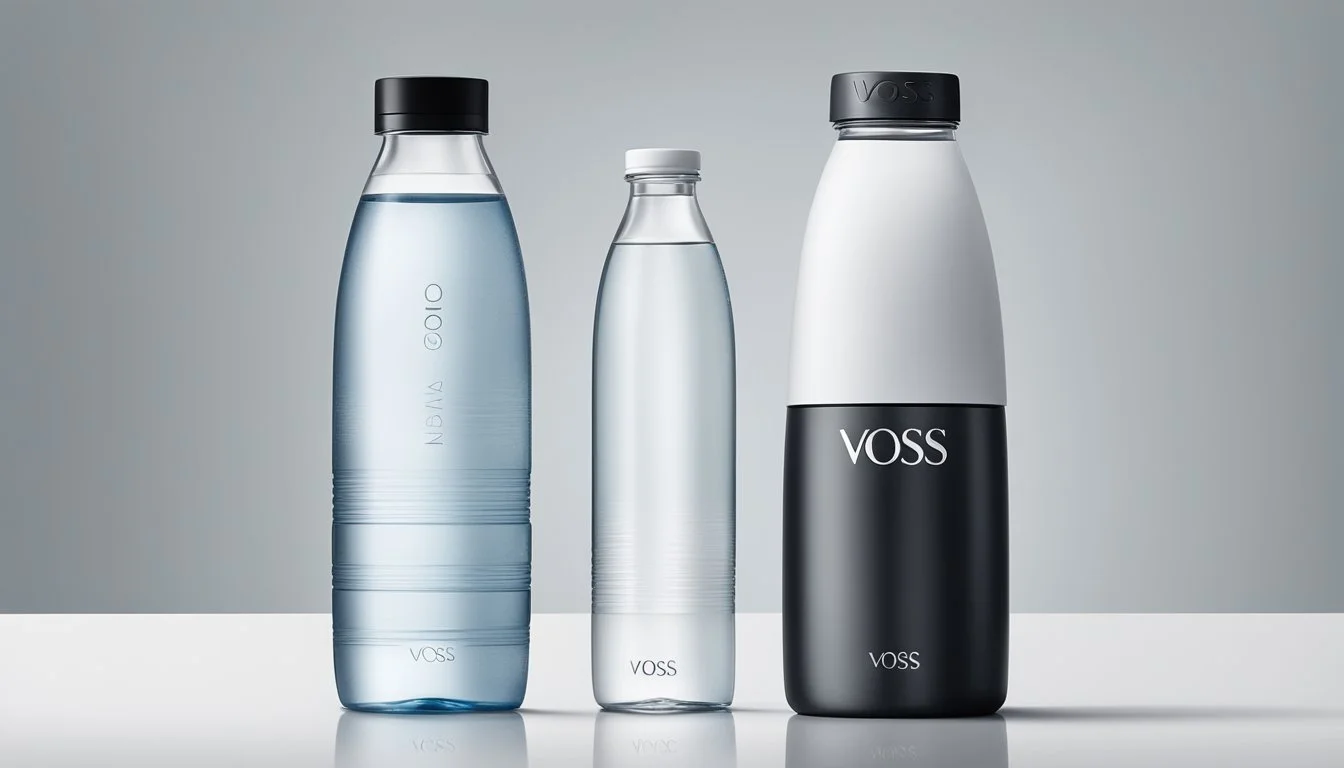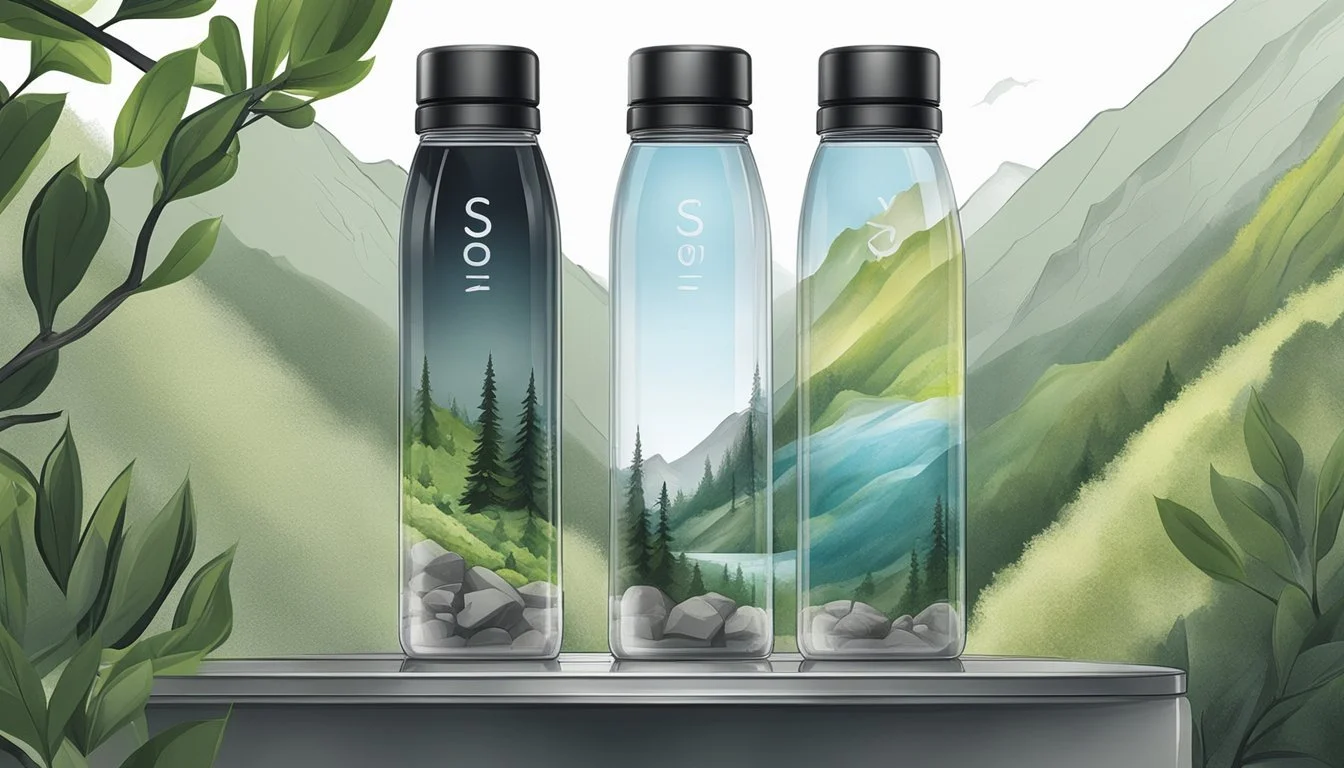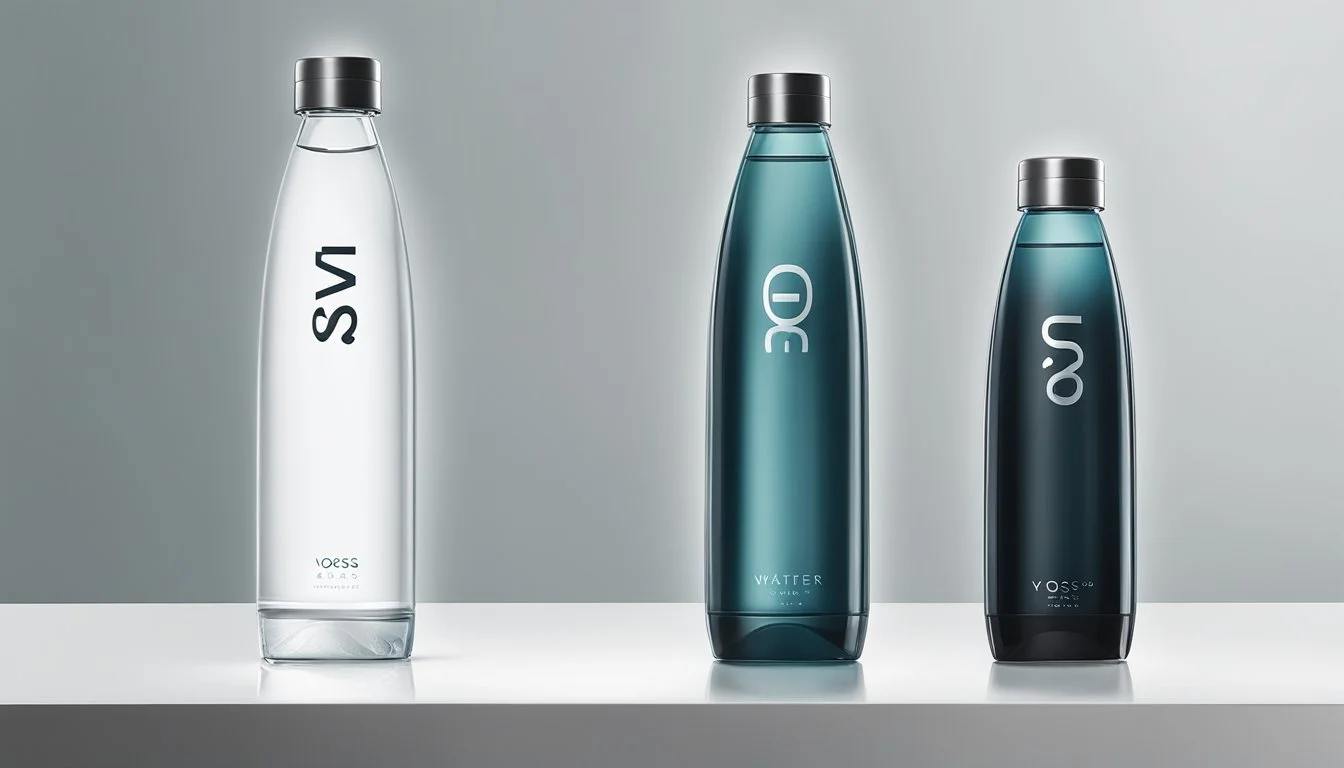Voss vs. Blk
Comparing Premium Bottled Waters
With the vast array of bottled waters on the market, consumers often find themselves debating which brand to purchase. Two notable contenders in the premium bottled water segment are Voss and Blk. While Voss is celebrated for its sleek glass bottles and pure, refreshing taste, Blk stands out with its distinctive black color, infused with fulvic minerals that claim various health benefits.
For those seeking a pure, clean hydration experience, Voss shines with its natural spring water sourced from Norway. Its minimalistic yet elegant packaging adds a touch of sophistication, making it a favorite among those who value both quality and aesthetics. In contrast, Blk's unique proposition lies in its fulvic mineral content, which promises not only hydration but also additional health benefits such as improved nutrient absorption and immune support.
Choosing between Voss and Blk ultimately depends on personal preferences and priorities. Those inclined towards a premium, unadulterated water experience may opt for Voss, while consumers interested in innovative health enhancements might lean towards Blk. This article will explore the differences in detail, assisting readers in making an informed choice.
Origin and Source of the Water
Understanding the origin of Voss and Blk water offers insights into their unique qualities and benefits, from the pristine artesian sources in Norway to the innovative infusion of minerals in Blk.
Voss: Artesian Water from Norway
Voss water originates from an artesian source in southern Norway. This underground aquifer is naturally protected from pollutants, contributing to the water’s purity. The artesian nature of Voss means the water rises to the surface naturally due to pressure, without the need for pumping.
The mineral content of Voss water is notably low, offering a clean, crisp taste that is often marketed as ultra-pure. Bottled directly at the source, Voss is known for its minimalist design and high-quality water, making it a preferred choice among premium water consumers.
Blk: Alkaline and Fulvic-Trace Mineral Infused Water
Blk water is renowned for its alkaline properties and the infusion of fulvic trace minerals. Unlike traditional mineral or spring waters, Blk's origin involves a special process where purified water is enhanced with these minerals, resulting in its characteristic black color and high pH level.
The fulvic acid used in Blk water comes from rich soil deposits known for their health benefits. By incorporating these trace minerals, Blk offers a unique composition that appeals to health enthusiasts looking for added benefits beyond hydration. This process differentiates Blk from other traditional sources, providing a distinct marketplace identity.
Water Quality and Purification Processes
Examining the purification methods and the quality of minerals and electrolytes in Voss and Blk water highlights essential differences in these premium bottled water options.
Filtration and Purity
Voss water originates from an underground aquifer in Southern Norway. It undergoes a meticulous purification process involving microfiltration and ultraviolet exposure. This process ensures the water retains high purity levels, free from contaminants.
Blk water, in contrast, is infused with fulvic minerals. While it boasts natural purification through its source, it does not involve high-tech filtration techniques like reverse osmosis or ozone treatment. The black hue presents a distinctive characteristic due to the fulvic minerals within.
Overall, Voss places a strong emphasis on using advanced purification technologies to deliver clean, pure water, while Blk harnesses natural processes coupled with unique iodine minerals.
Electrolytes and Minerals
Voss water contains a balanced mineral profile with naturally occurring electrolytes. These include calcium, magnesium, and potassium, contributing to the water's clean and crisp taste. The mineral composition is carefully monitored, providing a neutral pH level that appeals to consumers seeking smooth-tasting water.
Blk water’s unique selling point is its addition of fulvic minerals. These minerals, derived from prehistoric plant deposits, enhance the water’s nutritional benefits. Blk water claims to support hydration and nutrient absorption due to these electrolytes and minerals, although it lacks the extensive scientific backing that some other bottled waters possess.
In summary, Voss offers a balanced, pure mineral profile, perfect for those preferring a classic approach to hydration. Blk introduces a novel twist with its fulvic mineral content, catering to those interested in alternative hydration solutions.
Health and Hydration Benefits
Both Voss and Blk bottled waters offer unique characteristics that influence their health and hydration benefits. These aspects revolve around the pH levels, alkalinity, mineral content, and the presence of electrolytes in the water.
pH Balance and Alkalinity
Voss water is known for its low Total Dissolved Solids (TDS) and near-neutral pH, typically around 7. Voss is often highlighted for its purity, as it contains minimal additives. This makes it a suitable option for those who prefer water that does not interfere with their body's natural pH balance.
Blk water, on the other hand, is unique due to its dark color, attributed to the presence of fulvic minerals. It has a pH level that ranges between 8.0 and 9.0, classifying it as alkaline water. Alkaline water is often favored by those seeking to reduce acidity in the body and improve overall pH balance.
Hydration and Electrolytes
Voss water's appeal largely lies in its high purity and lack of significant mineral content. While it is an excellent source of hydration, especially during physical activities, it does not offer additional electrolytes. This makes it a great choice for those looking for a clean, crisp taste without extra minerals.
In contrast, Blk water claims to offer enhanced hydration benefits due to its fulvic mineral content. These minerals not only give the water its characteristic color but may also contribute to better hydration by providing trace elements that can aid in electrolyte balance. While scientific evidence backing these claims is limited, many consumers report a perceived improvement in energy and hydration levels.
Overall, the choice between Voss and Blk water depends on individual preferences and specific hydration needs, with Voss being ideal for those seeking purity and Blk appealing to those interested in alkaline water and potential additional hydration benefits.
Taste and Flavor Profile
Voss and Blk water offer distinct taste and flavor experiences due to their unique sourcing and mineral content. Research into consumer taste preferences reveals notable differences between the two brands.
Water Taste Testing and Preferences
Voss water is renowned for its crisp, clean taste, often attributed to its artisanal origins in Norway. Many consumers appreciate its refreshing and smooth mouthfeel. Professional water sommeliers often describe Voss water as having a neutral flavor profile that compliments a variety of foods.
Blk water, on the other hand, is known for its bold, earthy taste due to the fulvic minerals infused in the water. This gives it a characteristic dark color and a unique, slightly alkaline flavor. Taste tests often find that Blk appeals to those who enjoy a more robust and distinctive taste.
Flavors and Palate
In terms of flavored options, Voss offers a range of infused waters featuring natural essences like lemon cucumber and tangerine lemongrass. These flavors are subtle, complementing its base water without overwhelming the palate. The flavor-infused Voss waters are light and refreshing, making them suitable for a variety of occasions.
Blk water does not typically offer flavored variations, focusing instead on its original formulation. The taste profile of Blk water is influenced heavily by its mineral content, which some consumers find energizing and robust. This brand appeals to drinkers seeking a unique and enriched water experience, distinct from the typical bottled water options.
Packaging and Environmental Considerations
In comparing Voss and Blk bottled waters, their packaging choices and environmental impacts are critical factors. This analysis examines the advantages and disadvantages of plastic versus glass bottles and their overall sustainability.
Plastic vs. Glass Bottles
Voss and Blk offer different packaging options. Voss primarily uses glass bottles for its premium feel and environmental benefits. Glass bottles are reusable and recyclable, making them a preferred choice for environmentally conscious consumers. Additionally, glass maintains the integrity and taste of the water better than plastic.
On the other hand, Blk uses plastic bottles, which are lightweight and convenient. Plastic bottles are less prone to breaking and are easier to transport. However, they pose significant environmental concerns due to their lower recyclability rates and the pollution associated with plastic waste.
Both materials have pros and cons, but glass generally emerges as a more sustainable option when considering long-term health and environmental impacts.
Environmental Impact and Sustainability
Glass is notable for its excellent environmental credentials. It is 100% recyclable and can be recycled endlessly without loss of quality. This reduces the demand for raw materials and the energy required for production. However, transporting glass bottles can be more energy-intensive due to their weight.
Plastic bottles, while convenient, pose serious environmental challenges. They are often not recycled properly, leading to significant landfill waste and ocean pollution. The production of plastic also consumes large amounts of fossil fuels and releases greenhouse gases. Innovations in biodegradable and plant-based plastics are being explored, but they have not yet reached widespread use.
Sustainability efforts by both brands are crucial. Voss focuses on minimal environmental impact through its reusable glass bottles. Blk, needing to address the plastic issue, could enhance its sustainability by investing in improved recycling programs or alternative materials.
In sum, packaging choices have profound implications for environmental impact, and glass simply outperforms plastic in most sustainability metrics.
Market Presence and Consumer Choice
Voss and Blk, two prominent bottled water brands, compete in terms of market presence and consumer preferences. Both brands have distinct product attributes but also share similarities with other premium bottled water brands.
Availability in Grocery Stores
Voss is widely accessible in various grocery stores and retail outlets. It can commonly be found in major supermarkets across the United States and many other countries. Its glass bottles with a sleek design have made it a premium option for consumers looking for something distinctive. Voss' presence is strong in upscale grocery chains and is easily identifiable due to its packaging.
Blk has a more niche market presence compared to Voss. While it is available in several grocery stores, it might not be as ubiquitously found as Voss. Blk’s unique selling point is its black-colored water, due to fulvic minerals, which can intrigue consumers but may also limit its mainstream appeal. It is often seen in health food stores and specialized retailers.
Comparison with Other Bottled Water Brands
Voss and Blk offer unique features that set them apart from other bottled water brands.
Voss is renowned for its source in Southern Norway, a pristine underground aquifer, ensuring high quality and purity. Competing brands like Fiji Water and Evian also emphasize natural origins, with Fiji sourced from an aquifer in the South Pacific and Evian from the French Alps. Similar to Voss, these brands target consumers who prefer premium water.
Blk, on the other hand, markets itself based on its distinct black hue and added minerals. It stands in contrast to more traditional bottled waters like Aquafina and Dasani, which focus on purified tap water. While brands like Essentia and Core Hydration market themselves based on enhanced pH and electrolytes, Blk’s fulvic mineral content offers a different type of premium appeal.
These unique selling points influence consumer choice significantly. Shoppers looking for sleek design and purity may lean towards Voss, while those interested in unique features like fulvic minerals may choose Blk.
Safety and Regulatory Compliance
Bottled waters, including Voss and Blk, are monitored to ensure safety and quality. This section explores the standards they must meet and the safety implications of different bottle materials.
Bottled Water Standards and Quality Control
In the United States, bottled water is regulated by the Environmental Protection Agency (EPA) and the Food and Drug Administration (FDA). These agencies ensure that bottled water meets strict safety and quality standards, comparable to those set for municipal tap water.
The EPA requires regular testing for contaminants and adherence to specific limits for various harmful substances. Brands like Voss and Blk must undergo rigorous water testing for bacteria, chemicals, and other pollutants to ensure they are safe for consumption.
Labels must accurately reflect the water's source and mineral content. Ensuring transparency, companies provide detailed water quality reports to consumers. This transparency helps maintain consumer trust and verifies the safety and quality of the product.
Safety of Drinking from Plastic and Glass Bottles
The choice of bottle material raises safety considerations. Voss typically uses glass bottles, while Blk often opts for BPA-free plastic. Glass bottles are generally considered safe as they do not leach chemicals into the water, preserving its purity.
Plastic bottles have raised concerns, especially regarding Bisphenol A (BPA). BPA is a chemical found in some plastics that can leach into the water, potentially causing health issues. Brands like Blk mitigate this risk by using BPA-free plastics, ensuring consumer safety.
Regular testing for chemical leaching in plastic bottles is essential. This testing ensures that the bottled water remains free from contaminants released by the packaging material, safeguarding health and quality.
Conclusion
When comparing Voss and Blk bottled water, several factors come into play.
Hydration: Both brands provide effective hydration. Voss offers pure, crisp water sourced from Norway, while Blk is infused with fulvic minerals, giving it a unique black color.
Quality: Voss is recognized for its low Total Dissolved Solids (TDS) and pollutant-free nature. Its sleek glass bottle adds a touch of luxury. Blk's appeal lies in its mineral content, which some believe offers additional health benefits.
Taste: Voss has a neutral taste, making it favored by those who prefer a classic water profile. Blk, due to its mineral content, has a distinct taste, which might not appeal to everyone.
Appearance: Voss water is clear and marketed in stylish bottles, often seen in upscale settings. Blk, with its distinctive black color, stands out on shelves and appeals to those looking for something different.
Price: Voss tends to be on the higher end of the price spectrum due to its premium branding and packaging. Blk may also be considered premium but is often chosen for its unique qualities rather than just packaging.
Both Voss and Blk have their own strengths and cater to different preferences and needs. The choice between them depends on individual priorities regarding taste, presentation, and perceived benefits.

